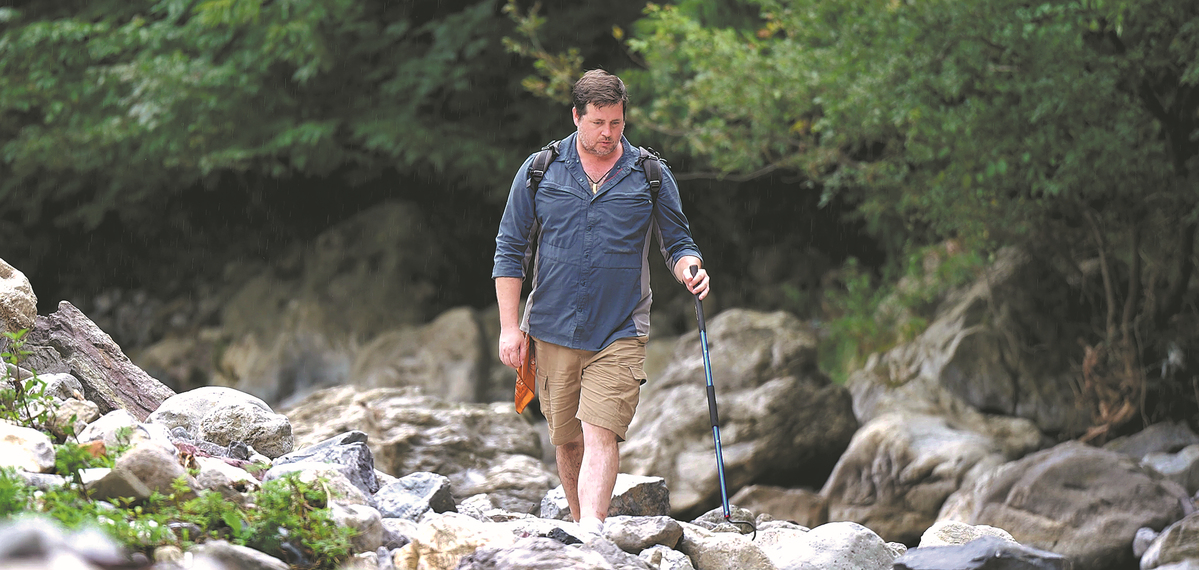Expert explores China for unknown reptiles
'Doctor Snake' from the US has discovered some 10 new species inside Hubei World Natural Heritage Site
By Zhou Lihua, Liu Kun and Peng Chao | China Daily | Updated: 2024-11-07 08:41

During a field survey, Messenger usually spends about one week at a field station, going out multiple times a day to find and identify the reptiles and amphibians, trying to get a complete picture of their distribution.
He photographs them, sometimes collects a specimen, and occasionally does genetic work to identify their species. Following the survey, he returns to the university or home base and documents all the recordings in a database. "It is very tiring, very hard and underappreciated. But it is also very enjoyable. Every single time I see a snake, I just get super excited," Messenger said.
Although he's been bitten by snakes countless times, he does not blame them, believing that the majority of snakes are gentle and kind, and that biting is a form of self-defense.
In May 2012, Messenger was bitten by a venomous snake — Protobothrops jerdonii, or Jerdon's pit viper — in Shennongjia, which left him unconscious for 30 to 40 minutes and his entire arm swollen.
He stayed in the hospital for two days, and it wasn't until the seventh day that he was able to use chopsticks or write with his right hand.
Shennongjia is a place that Messenger holds dear, having visited the area as many as 16 times. He has discovered roughly 10 new species within this UNESCO World Heritage Site and he is currently working on what's most likely a new species of toad.
"I've noticed more and more local people having an appreciation for the environment and wildlife and being more interested in doing whatever they can do to help," he said, adding that this has further motivated him to continue his work in Shennongjia.
In June, he was appointed by the Shennongjia National Park Administration as an external expert to conduct long-term field research in the area.
As part of his work, Messenger explores new areas outside of Shennongjia to study the local flora and fauna. If these areas meet the criteria for inclusion within the protective zone, new boundaries will be drawn accordingly.
"Protecting the environment is protecting ourselves, because we belong to the environment," he said.
In March, Messenger registered his marriage to Li Yecheng, from Anhui province, who subsequently accompanied him on his exploration of Shennongjia.
Messenger said his sister always asks their father, who has visited China and attended his wedding, when her brother will return home.
On the most recent occasion, their father told her that he sees no reason for Messenger to go back, as his support system in China is so good. "I'm hoping to stay in China for at least another 10 years, and then maybe continue for another 10 years after that," he said.
Contact the writers at pengchao@chinadaily.com.cn
























